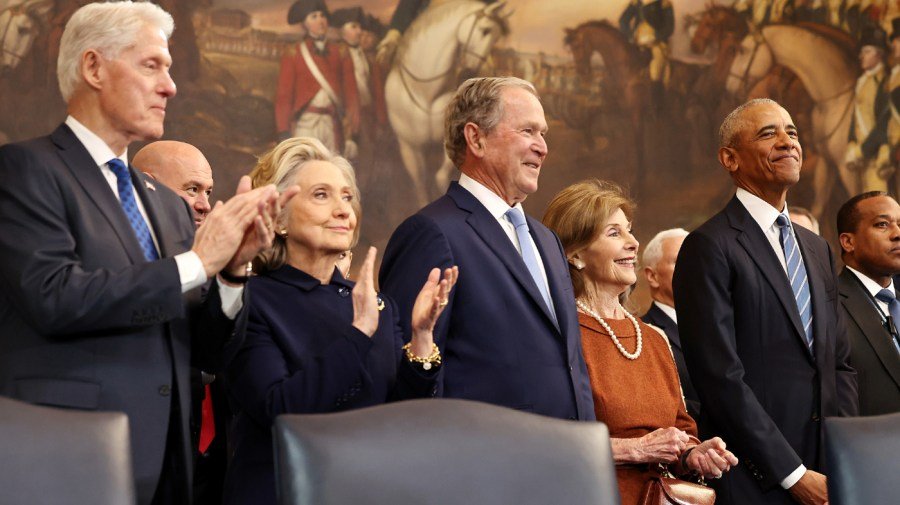
If the federal debt is $37 trillion, it should be obvious that taxpayers can’t subsidize the wealthy. Yet that is exactly what happens each year under an outdated law providing former presidents with benefits and perks costing taxpayers more than $5 million a year.
The bucks started with Harry Truman. After leaving the White House, he complained about the costs imposed on him for responding to mail and requests for speeches. To “maintain the dignity” of the office of the president, Congress decided that taxpayers should foot the bill for him.
The Former Presidents Act of 1958 provides lifetime funding for office space, staff, equipment, printing, communications and a pension.
However, it turns out that Truman lied. Papers released after Bess Truman’s death revealed that the former president underreported his wealth.
Lawyer Paul Campos analyzed those documents and concluded, “Harry Truman was a very rich man who lied about his considerable wealth in order to cajole Congress into passing the Former Presidents Act.” Poor Truman’s wealth amounted to over $1 million, equivalent to approximately $72 million in today’s dollars.
This pricey presidential perks program, based on a falsehood, makes even less sense today. While the exact wealth of ex-presidents is not publicly available, media estimates rank them all as multi-millionaires. On top of that, they have lucrative opportunities in the private sector to add to their personal wealth through investments and deals.
For example, former President Joe Biden reportedly signed a $10 million deal for his memoirs. Barack Obama landed a production deal with Netflix for an unreported but likely substantial sum. In addition, former presidents can earn a payday ranging from $100,000 to $500,000 just for giving a single speech.
The single largest cost driver under the Former Presidents Act is the ever-increasing office expense. There is no limit on their size or location, giving former presidents free rein to lease prime real estate at taxpayer expense.
For example, Former President Bill Clinton’s New York office has cost taxpayers millions over the years. Former President George W. Bush’s Dallas office runs into six figures annually. These offices can also be located within the presidents’ foundations, blurring the line between public support and private ventures, and enabling the commingling of taxpayer dollars with political or charitable operations.
Taxpayers are also subsidizing activities that generate massive personal income for former presidents. The offices established under the Former Presidents Act handle scheduling, correspondence and logistics, including for those speaking engagements that can net hundreds of thousands of dollars per appearance.
Thankfully, there is a common-sense solution. Sen. Joni Ernst (R-Iowa) has introduced legislation to rein in these perks and modernize the Former Presidents Act. Her Presidential Allowance Modernization Act would cap the taxpayer-funded allowances provided to ex-presidents, while ensuring that those who continue to earn substantial outside income see reductions in their benefits.
This reform builds on bipartisan efforts from the past. In 2016, Congress unanimously passed similar legislation to limit perks, only to see it vetoed by President Obama just months before his second term ended. Lawmakers could also consider setting a cap on the number of years an office is available or eliminating the perk altogether.
It makes little sense that those who once held the highest office in the land and who can command six-figure speaking fees or ink multimillion-dollar book contracts can still draw on the public purse for office rent.
Reforming presidential perks sends a clear and powerful message: taxpayers facing down tough policy decisions as the national debt continues to balloon should not be subsidizing the lifestyles of the rich and famous.
Ending outdated entitlements like these is precisely the kind of reform that can restore trust in government and demonstrate seriousness about fiscal responsibility.
Demian Brady is vice president of research at National Taxpayers Union Foundation.


